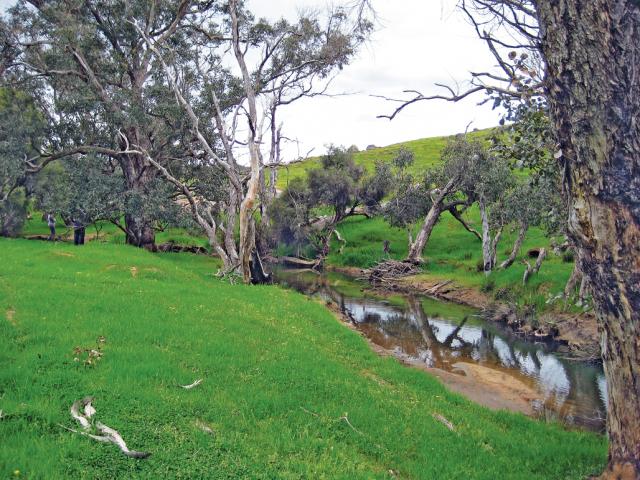Sustainable production and resource protection
Productivity and profitability are usually the immediate concerns to farmers but other issues such as long-term access to markets need to be considered. Some markets insist that farming practices are sustainable, such as Quality Assured production systems. Maintaining optimum soil pH by appropriate lime use is both environmentally friendly and economically profitable helping to ensure sustainability.
Long-term prosperity will be enhanced by maintaining the quality of the soil resource. If soil acidification is untreated, the subsurface soils can become highly acidic meaning amelioration is difficult, expensive and long-term, and all the while productivity is reduced. If pH becomes too low, clay in the soil can be dissolved and soil structural damage can be permanent.
Where acidic soil has reduced plant growth, the susceptibility of the land to wind and water erosion is increased. Such erosion can cause the loss of topsoil, nutrients and soil organic matter.
Offsite impacts
Soil acidity has impacts reaching far beyond the farm gate and liming to reduce or prevent on-farm soil acidity will have the offsite benefit of reducing these impacts.
Most offsite impacts of soil acidity stem from reduced plant growth leading to less stable soil, poor plant cover and reduced uptake of nutrients and water.
Streams and waterways may be impacted through sedimentation (from eroded soil) and eutrophication (increased nutrients leading to algal blooms). These impacts can result in reduced abundance and diversity of aquatic life, particularly if it is an ongoing problem. Degradation of the quality of waterways from these impacts can be long-term and have a wide ecological effect.
Groundwater is an important natural resource in WA and can be polluted by leaching of nutrients. More nutrients are leached when acidic soil restricts root growth and therefore nutrient uptake by the plant.
Salinity can result from insufficient water usage, which is a greater problem if root growth is restricted and the roots are unable to access moisture deeper in the soil profile. When deep-rooted species are unrestricted in growth, salts remain deeper in the soil and are not problematic.

